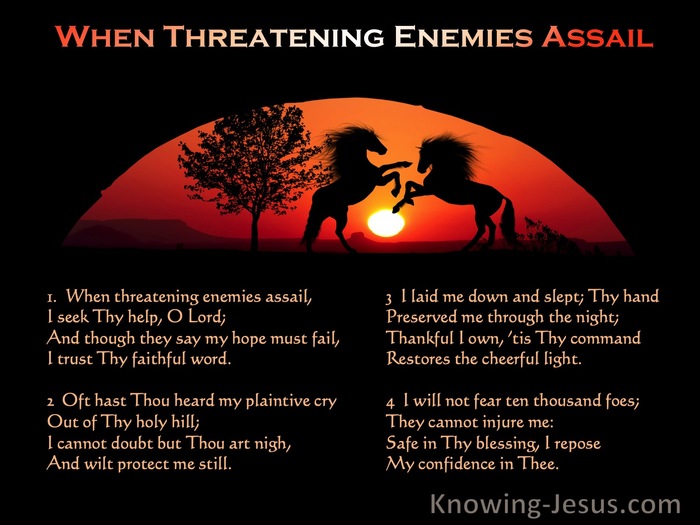

David knows that he has no escape, so he turns to the Lord and begs for salvation.

They have surrounded David’s cohort, set their eyes to the slaughter, and are rearing back, preparing to pounce on their prey like a lion in ambush. Contrary to the steadfast love of God, David’s enemies “close their hearts to pity”-they show no mercy. He hints at the danger that he is in by describing the ruthlessness of his enemies. Why? Because his enemies “surround” him, and he is afraid. When we seek our temporal, earthly refuge in God, we know that He will be faithful to provide a safe haven, because He has already been so faithful in providing eternal salvation for us.ĭavid asks God to be his “refuge,” to “keep” him, and “hide,” him. Because He is abounding in steadfast, unfailing, great, faithful loving kindness to those whom He has chosen, we can rest in Him. For this reason, the Bible Project chooses to translate it as ‘loyal love.’ It is related to God’s covenant to His people, Israel, and His faithfulness to that covenant. It has variously been translated as ‘loving-kindness,’ ‘steadfast love,’ ‘unfailing love,’ ‘great love,’ ‘faithful love,’ and more. However, there is no direct English translation of this attribute from the Hebrew. He talks of God’s ‘steadfast love,’ or ‘ chesed,’ which is one of God’s most prominent attributes in the Old Testament. Notice how David begins his request with a focus on God. In verses 7-12, David makes his first request, which is essentially, “God protect me from my enemies.” Only then does David finally get to the first of his two prayer requests. David spends the beginning of Psalm 17 beseeching God to hear his prayer, and remembering how God has declared him as righteous in His sight. Prayer is communication with the God of the Universe. When we pray, it is important not to jump right into our requests.


 0 kommentar(er)
0 kommentar(er)
